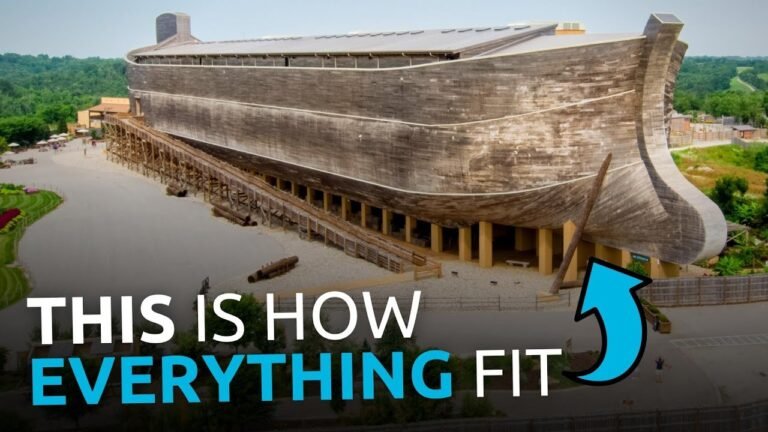Legacy of Archbishop Tutu: A Beacon of Hope and Justice
Archbishop Desmond Tutu, a beacon of hope and resilience, has left an indelible mark on the world through his unwavering commitment to justice and human rights. Renowned for his pivotal role in the fight against apartheid in South Africa, Tutu’s powerful voice and compassionate spirit have inspired countless individuals across the globe. His legacy not only encompasses his tireless activism but also his profound teachings on forgiveness and reconciliation, making him a symbol of peace and moral integrity in turbulent times. As we reflect on his life and contributions, we are reminded of the enduring power of love and the importance of standing up for what is right.
What legacy did Archbishop Tutu leave behind?
Archbishop Tutu left a legacy of peace, reconciliation, and social justice, advocating for human rights and promoting forgiveness in post-apartheid South Africa.
What is the fate of Archbishop Tutu?
Archbishop Desmond Tutu, a prominent figure in the fight against apartheid and a symbol of peace and reconciliation, faced health challenges in his later years. In the late 1990s, he was diagnosed with prostate cancer, a battle that would shape much of his life thereafter. Despite his illness, Tutu remained a steadfast advocate for justice and human rights, inspiring countless individuals around the globe.
In recent years, Tutu’s health fluctuated as he was hospitalized multiple times due to infections related to his cancer treatment. These hospital visits highlighted the resilient spirit of a man who had dedicated his life to uplifting others, even as he faced significant personal struggles. His unwavering commitment to his principles served as a beacon of hope during a challenging chapter in his life.
Ultimately, Tutu passed away peacefully in the early hours of Sunday morning, surrounded by his loved ones. His death marks the end of an era for many, but his legacy of compassion, advocacy, and moral courage will continue to resonate. As the world mourns the loss of this extraordinary leader, his teachings and example will live on, inspiring future generations to pursue justice and equality.
What are the key contributions of Archbishop Desmond Tutu?
Archbishop Desmond Tutu, a prominent South African Anglican cleric, is best known for his unwavering commitment to justice and reconciliation during the tumultuous era of apartheid. Born on October 7, 1931, in Klerksdorp, he emerged as a leading voice against racial oppression, advocating for nonviolent resistance and human rights. His efforts culminated in receiving the Nobel Prize for Peace in 1984, recognizing his pivotal role in the struggle for equality in South Africa. Tutu’s legacy extends beyond his activism, as he also played a esencial part in the establishment of the South African truth commission, promoting healing and understanding in a divided nation.
Was Archbishop Tutu a member of the Catholic Church?
Archbishop Desmond Tutu, a prominent figure in the fight against apartheid, was not a Catholic priest but an Anglican one. He studied at St. Peter’s Theological College in Johannesburg, where he was ordained in 1961. His commitment to spiritual leadership continued as he pursued a Master of Theology at King’s College London in 1962. Tutu’s influential roles included serving as the associate director for the World Council of Churches and eventually becoming the dean of St. George’s Cathedral in Cape Town, where he became a moral voice for justice and reconciliation.
Illuminating the Path to Equality
In a world where disparities persist, the journey toward equality demands both courage and commitment from individuals and communities alike. Every step taken towards inclusivity, whether through advocacy, education, or grassroots initiatives, serves as a beacon of hope, illuminating the path for those who have long been marginalized. By fostering dialogue and understanding, we cultivate an environment where diverse voices are heard and valued, paving the way for systemic change.
As we unite in pursuit of equity, we must remember that each action, no matter how small, contributes to a broader movement. Empowering others through mentorship, supporting equitable policies, and championing diverse representation are vital components of this collective effort. Together, we can dismantle barriers and forge a future where opportunity is not dictated by background but is accessible to all, ensuring that the light of equality shines brightly for generations to come.
A Lifelong Commitment to Peace
In a world often fraught with conflict and division, the pursuit of peace stands as a noble and enduring aspiration. Achieving lasting harmony requires more than just occasional gestures; it demands a lifelong commitment from individuals and communities alike. By fostering understanding, empathy, and respect, we can create a foundation upon which peaceful coexistence thrives. This commitment transcends borders and cultures, uniting us in our shared humanity while encouraging dialogue and collaboration.
As we embrace this lifelong journey, we must recognize the transformative power of education and awareness in nurturing a culture of peace. By equipping future generations with the tools to resolve conflicts constructively, we pave the way for a more harmonious society. Each small action, whether through community service, advocacy, or simply listening to one another, contributes to a larger tapestry of peace. Together, we can cultivate an environment where differences are celebrated, and the spirit of cooperation flourishes, ensuring that the commitment to peace endures for years to come.
Inspiring Generations Through Faith
Faith has the remarkable power to unite individuals across diverse backgrounds, creating a tapestry of shared values and aspirations. By fostering a sense of belonging, communities built on faith inspire their members to strive for a higher purpose. This collective journey not only strengthens personal convictions but also encourages acts of kindness and compassion that ripple through society, leaving an indelible mark on future generations.
In nurturing the spiritual growth of young people, faith communities play a esencial role in shaping their moral compass. Through mentorship, shared traditions, and communal worship, they instill principles of integrity, resilience, and empathy. This guiding influence empowers youth to navigate life’s challenges with confidence, equipping them to become responsible leaders and compassionate citizens who will carry the torch of their beliefs into the future.
As each generation embraces the values of their faith, they create a legacy that transcends time. This ongoing cycle of inspiration fuels hope and ignites passion, encouraging individuals to dream bigger and aim higher. By living out their beliefs with authenticity and purpose, they not only honor their traditions but also pave the way for a brighter tomorrow, affirming that faith is not merely a personal journey, but a shared mission to uplift and inspire all.
The Enduring Fight for Human Rights
Across the globe, the fight for human rights remains a vital struggle that transcends borders and cultures. Activists, organizations, and everyday citizens continue to rally for justice, equality, and freedom, often risking their safety to advocate for those whose voices are silenced. This enduring commitment reflects a universal recognition that human rights are inalienable, serving as the foundation for dignity and respect in societies worldwide. From grassroots movements to international coalitions, the determination to uphold these rights is a testament to the resilience of the human spirit.
Yet, challenges persist as oppressive regimes and systemic inequalities threaten these fundamental freedoms. In many regions, individuals face persecution for simply advocating for their rights, while marginalized communities grapple with discrimination and violence. The ongoing struggle highlights the essential role of solidarity and awareness in fostering a more just world. By standing together and amplifying the message that human rights are for everyone, we can inspire change and pave the way for a future where dignity and justice prevail for all.
Archbishop Tutu’s legacy resonates far beyond his lifetime, embodying the enduring spirit of compassion and justice. His unwavering commitment to human rights and reconciliation has inspired countless individuals to advocate for a more equitable world. As we reflect on his profound impact, it is clear that his teachings will continue to guide future generations in the pursuit of peace and understanding, reminding us all of the power of love in the face of adversity.






